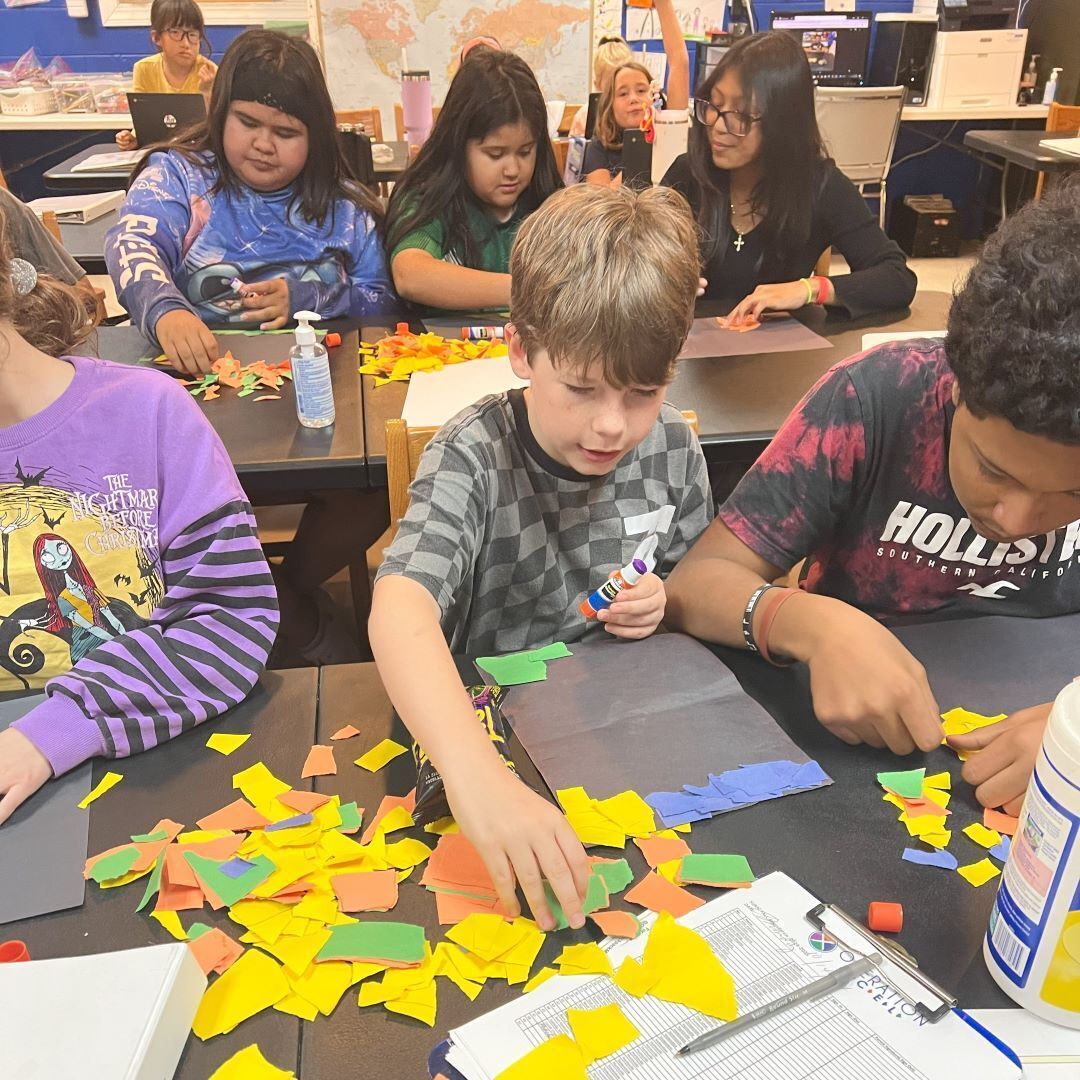
The Pew Research Center cites anxiety, depression, bullying including cyberbullying, and poverty as primary concerns among youth today. Seventy percent of students surveyed say that stress and anxiety are major problems for them and their peers. Fifty-five percent of teens are concerned about their personal safety because of bullying and gang violence and four out of ten students live in households with income below the poverty limit. The prevalence of social media has initiated too much comparison and FOMO (fear of missing out) lending to social isolation and anxiety. Pew Research stats show that Black teens live in households whose income is below the poverty limit at twice the rate of white households. While teens share these concerns nationwide, the issues that commonly affect Operation Xcel students are anxiety and poverty.
In our recent blogs we focused on how Operation Xcel leverages SEL in its programming to encourage mindfulness and thought replacement in youths dealing with anxiety. These strategies have shown success is helping teens pivot toward positive thoughts and outcomes. However, because of consistent academic- and peer pressure, post-pandemic anxiety, and FOMO, many youth require additional interventions to work alongside SEL approaches.
This blog focuses on what supplemental strategies Operation Xcel staff utilize to help students overcome their emotional concerns to learn effectively. We asked Operation Xcel Site Directors what else, besides SEL strategies, they incorporate to help students approach learning with less anxiety. The site directors feedback, though varied, reflects the fact that the site directors are aware of the issues that mentally impact the youth attending their afterschool programs and use behavioral strategies to steer children away from distractions that create obstacles to the acquisition of information necessary to successfully learn.
At one of the sites where most of the students are in elementary school, Mr. Revels, the Stokesdale Site Director, reports that he uses physical activity with learning. Mr. Revels acknowledges that most kids “like to move and have fun” and the combination of both is proven effective in removing anxiety among the children at the site. Children engaged in physical activities that are teaching something, are learning without even realizing that such is the case, says Mr. Revels. An example Mr. Revels provides is when playing ‘One, Two, Three, Red Light’ the teacher may call out a word or a math problem that a child must spell correctly or solve to move forward. The students who misspell the word or didn’t solve the problem correctly are less apt to become discouraged. Instead, they are learning from the correct answers that are shared aloud for everyone to hear. The children learn from it and regain their focus on trying to win the contest.
According to Port Discovery, a children’s museum in Baltimore, Maryland, playtime that doesn’t include schedules and other rigid expectations are known to help children shift their focus from what is bothering them to a space where they are in charge. During play, children control expressions of their authentic selves, solve problems, and connect and bond with others emotionally. This kind of detachment from emotional disturbances helps children not only get active and move their bodies but playtime helps them exercise their creative muscles, reducing stress and anxiety.
Other Operation Xcel elementary and middle school educators who serve as Site Directors chimed in indicating how they help children learn through the issues that weigh heavily on their minds. The intent of each of the strategies that Operation Xcel teachers incorporate is to help children focus on learning and away from negative emotions and thought patterns. Here are some techniques they use:
1. Scaffolding assignments – breaking parts of a complex task or assignment into more manageable parts helps students gradually increase their cognitive abilities and focus. Scaffolding gives students needed support and shows respect for every learner’s daily experience. (Mrs. King, Operation Xcel Program Director)
2. Creating smaller groups “provides a safe space for normally introverted students” which allows them to be involved in a community of peers. Enrichment programming allows students to “explore/experience beyond” the daily routine. (Ms. Perry, Southeast Middle School)
3. At Peck, Ms. Johnson’s students participated in various activities for two weeks to “build trust among their peers and staff they were meeting for the first time.” This “All About Me” activity and daily crew-check-ins allows students to discuss how they show up for afterschool programming each day. (Ms. Johnson is the Site Director at Peck Elementary School)
4. As students begin building relationships with adults with whom students do not ordinarily relate, it helps to expand the students’ village. (Ms. Perry, Site Director, Southeast Middle School)
Although these are not all the strategies proven to successfully help eliminate thought patterns that detract from learning in the classroom, these do reflect well-thought out and researched processes that Operation Xcel teachers incorporate in their comprehensive approach toward helping students succeed.
Hunger, a side effect of poverty, also negatively impacts student-learning. The national school breakfast program geared toward children from low-income households unintentionally creates a stigma among school students. Some students avoid eating the ‘free breakfast’ out of embarrassment. Hunger may cause academic achievement to slip also. How can a child focus on learning when their stomach aches with hunger pains? Fortunately, Guilford County Schools offer breakfast and lunch at no charge for students at some schools in their district, but not all. Since its inception, Operation Xcel has and continues to serve healthy snacks to its students before they begin any homework or other assignments. As further outreach, Operation Xcel does what it can to help low-income families facing possible food scarcity.
Operation Xcel partners with other nonprofit community organizations to provide food boxes and other personal essentials that families may benefit from. Unfortunately, the organization does not have the necessary resources to pull families above the poverty line. What the organization is doing, however, is providing information, skills, and knowledge for the students’ acquisition as building blocks so that they may continue to develop as they navigate toward a prosperous career in STEM/STEAM based industries. What Operation Xcel may directly impact at present is helping youth deal with their emotions, anxieties, and fears so that these concerns do not hinder their learning.

